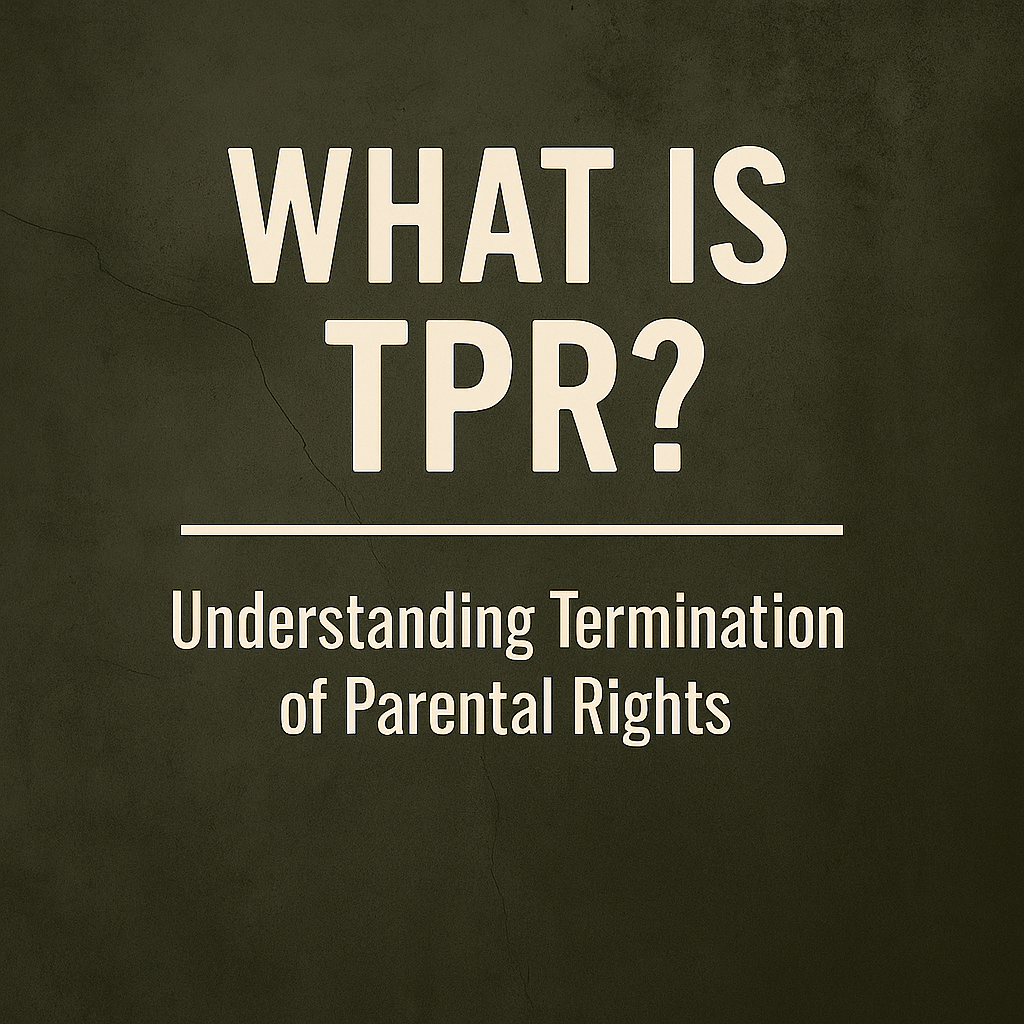
Termination of Parental Rights (TPR) is one of the most extreme legal actions a family court can take. Once it’s granted, your legal relationship with your child is permanently severed. You lose the right to visit, call, or make decisions for your child. In many cases, you may not even be notified if they are adopted.
In most cases, TPR is final. However, there are limited legal avenues that may allow a parent to challenge or reverse the decision under specific conditions. This article breaks down what TPR means, how it happens, and what your options may be if it happens to you.
What Does TPR Mean?
TPR (Termination of Parental Rights) refers to a legal process where the court permanently ends the parent-child legal relationship. After this occurs:
- The parent loses all legal rights and responsibilities related to the child.
- The parent no longer has the right to visit, contact, or obtain information about the child.
- The child becomes legally available for adoption, without the parent’s consent.
TPR can occur in two ways:
- Voluntary TPR: The parent willingly gives up their rights, often during an adoption process.
- Involuntary TPR: The court terminates a parent’s rights without their consent, usually due to findings of neglect, abuse, abandonment, or failure to comply with a reunification plan.
In Alabama, the law governing TPR is found in Alabama Code § 12-15-319, which allows the court to terminate parental rights if there is clear and convincing evidence that the parent is unable or unwilling to discharge their responsibilities and that the conduct or condition is unlikely to change in the foreseeable future.
What Happens After TPR?
When a parent’s rights are terminated:
- The parent is no longer legally recognized as the child’s guardian.
- The parent cannot challenge future adoption proceedings.
- The parent cannot receive updates about the child or have any further contact.
Can TPR Be Reversed?
In most situations, TPR is final. However, there are rare and limited exceptions where a parent might seek to challenge or reverse the termination.
1. Appeal the TPR Order (Strict Deadline)
In Alabama, a parent generally has 14 days to file an appeal after the court enters a TPR order. The appeal must argue that the court made a legal or procedural error. It can’t be simply that the outcome was unfair.
Source: Alabama Code § 12-15-323
2. Motion to Set Aside the Judgment
You may be able to file a motion to set aside the judgment if you can show:
- You were not properly notified of court proceedings.
- Your constitutional right to due process was violated.
- There was fraud or misrepresentation by the agency or legal representatives.
- Your attorney provided ineffective assistance of counsel.
These motions are rarely granted and typically require strong legal arguments and evidence.
Case Reference: Ex Parte E.D., 777 So. 2d 110 (Ala. 2000)
3. Civil Rights or Due Process Claims (Federal)
If your parental rights were terminated under coercion, falsified evidence, systemic bias, or retaliation, you may have grounds for a federal civil rights lawsuit.
Claims can be filed under:
- 42 U.S.C. § 1983 – Violation of constitutional rights under color of law
- 42 U.S.C. § 1985(3) – Conspiracy to interfere with civil rights
Source: Cornell Law – 42 U.S.C. § 1983
4. Reinstatement of Parental Rights (Not Yet in Alabama)
Some states allow parental rights to be restored under specific conditions, such as:
- The child has not been adopted.
- The parent has shown rehabilitation.
- The child desires reunification.
Alabama does not currently allow for reinstatement, but advocacy and legislative reform are growing across the country.
Policy Source: NCSL – Reinstatement of Parental Rights
5. Post-Adoption Contact (Non-Legal Option)
In rare cases, adoptive families may choose to allow continued communication between a child and their biological parent. This is not enforceable under Alabama law and depends entirely on the adoptive family’s willingness.
Final Thoughts
TPR is devastating but in some cases, it’s not the absolute end. If your rights were terminated unfairly, or if legal mistakes were made, you may still have a narrow window to act.
- Act quickly.
- Consult a family law attorney immediately.
- Document everything.
- Know your rights.
You are not alone. Families across Alabama and the nation are standing up, telling the truth, and fighting back against wrongful removals and unjust court decisions.